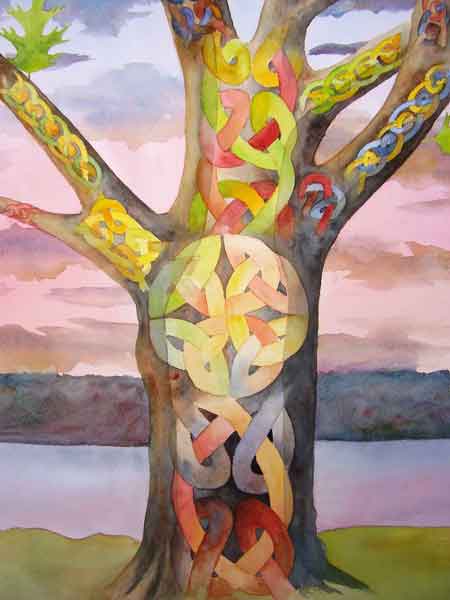Last week, I finished all of my Catechesis of the Good Shepherd training. I am now a trained catechist at all levels (I, II, III.) This part of my journey has been an experiment in moving where the Good Lord leads. If I had it my way, I would have started my training for Catechesis of the Good Shepherd 9 years ago. But God had it his way. This was the time He needed me to do it.
Last week, in the final days of an intensive week of training the words education to wonder kept nagging at me. This is a notion that I am very familiar with as a Montessorian. As a teacher we are called to observe the wonder of the child and at the same time be caught in wonder along side the child. The elementary curriculum of cosmic education is full of breath taking wonder. And for my years in the elementary Montessori world I was right there beside my students in full wonderment.
When I began my formation as a catechist in the Catechesis of the Good Shepherd, I was so happy to delve again into the notion of Education to Wonder.
Here is some of what Sophia Cavalletti has to say...
If we were to better clarify the nature of the stimulus man receives from wonder, perhaps we could compare it to a magnet. the nature of wonder is not a force that pushes us passively from behind; it is situated ahead of us and attracts us with irresistible force toward the object of our astonishment; it makes us advance toward it, filled with enchantment.
Wonder is a dynamic value; nevertheless it does not drive us to activism but draws us to activity, to an activity we do as persons immersed in the contemplation of something that exceeds us. Maybe the particularity of wonder is that we find activity and contemplation inseparable blended within it.
I would like to elucidate right away that in speaking about wonder I do not intend to talk about something like Alice in Wonderland. Wonder is a very serious thing that, rather than leading us away from reality, can arise only from an attentive observation of reality. Education to wonder is correlative with an education that helps us go more deeply into reality. If we skim over things we will never be surprised by them. Wonder is not an emotion of superficial people; it strikes root only in the person whose mind is able to settle and rest in things, in the person who is capable of stopping and looking. It is only through continued and profound observation of reality that we become conscious of its many aspects, of the secrets and mysteries it contains. Openness to reality and openness to wonder proceed at the same pace: As we gradually enter into what is real, our eyes will come to see it as more and more charged with marvels, and wonder will become a habit of our spirit.
Sophia Cavalletti
From The Religious Potential of the Child, Ch. 8


No comments:
Post a Comment